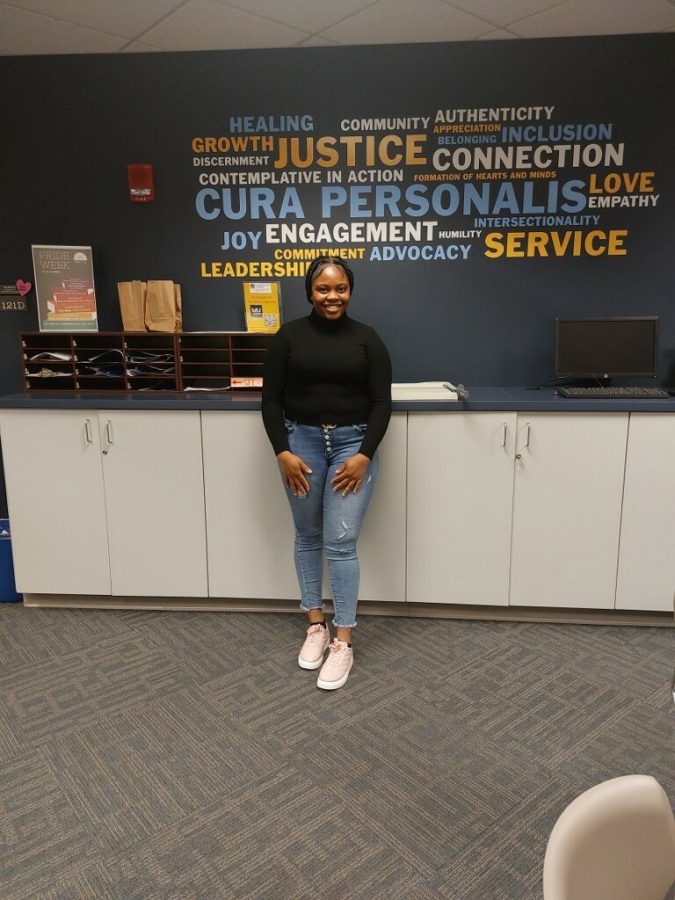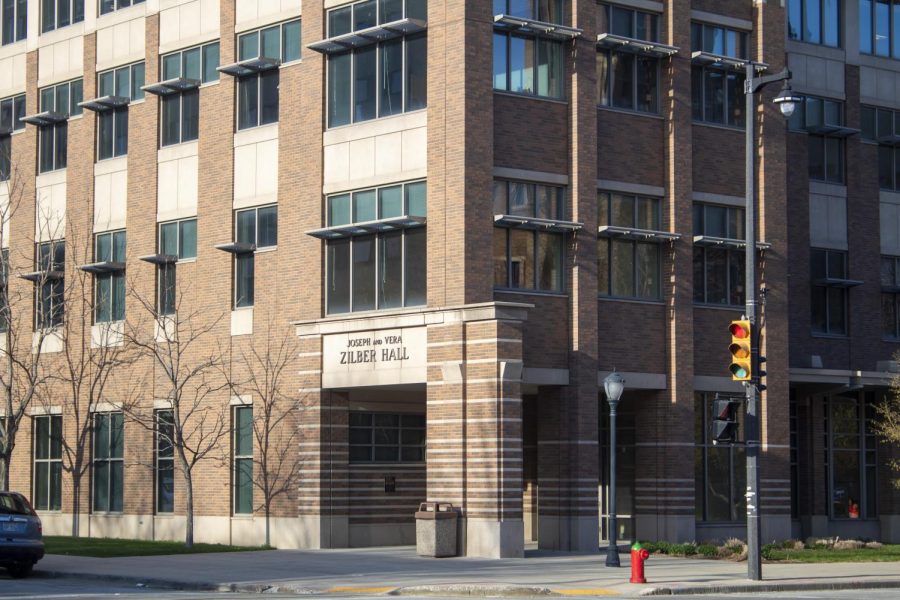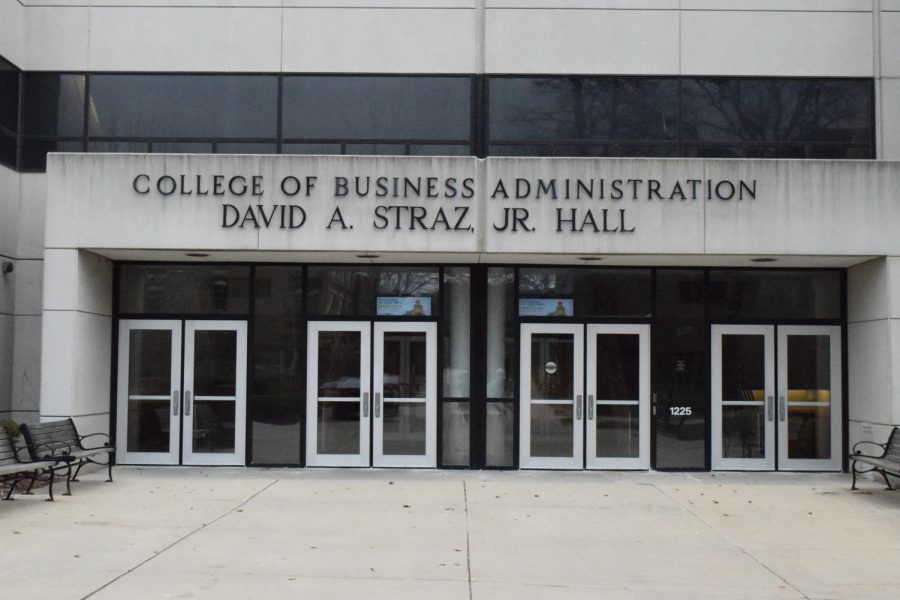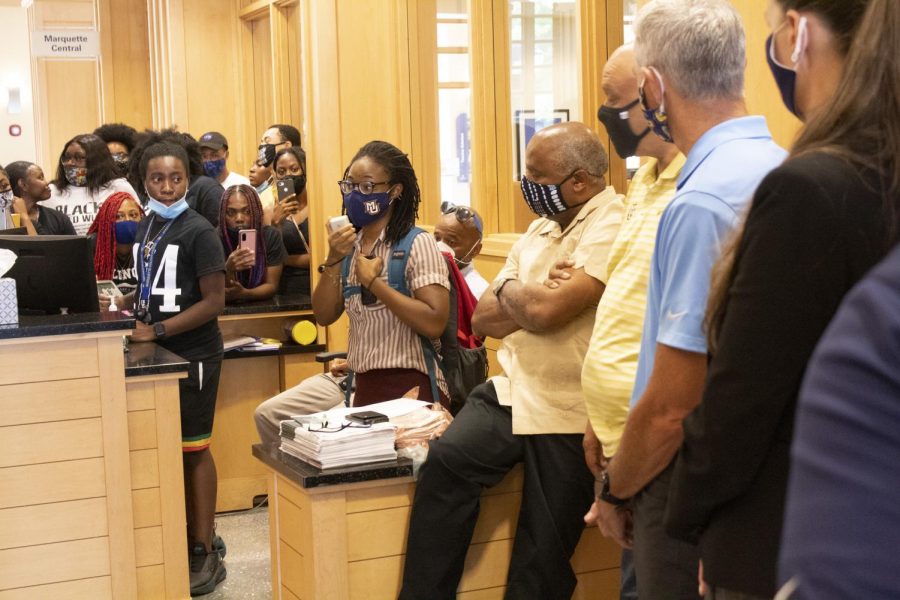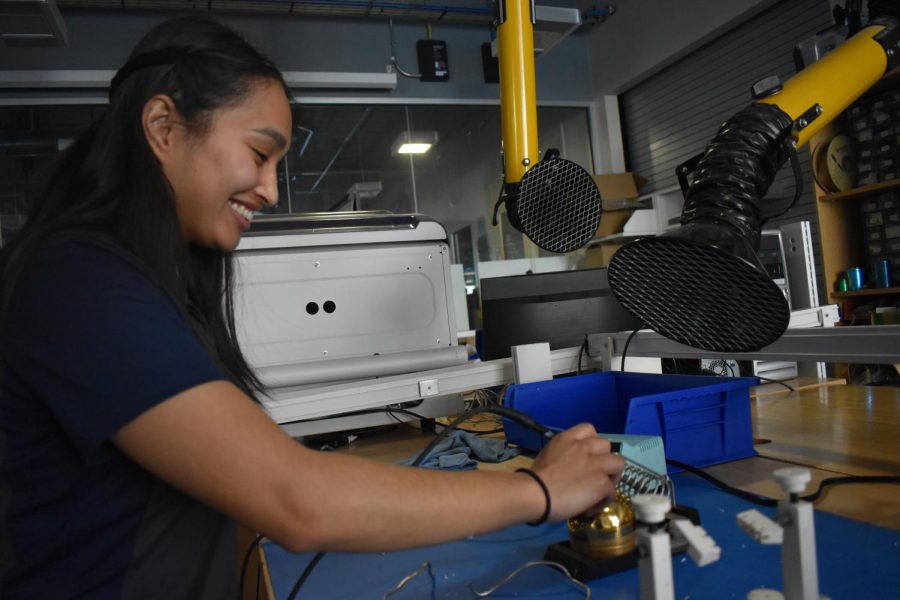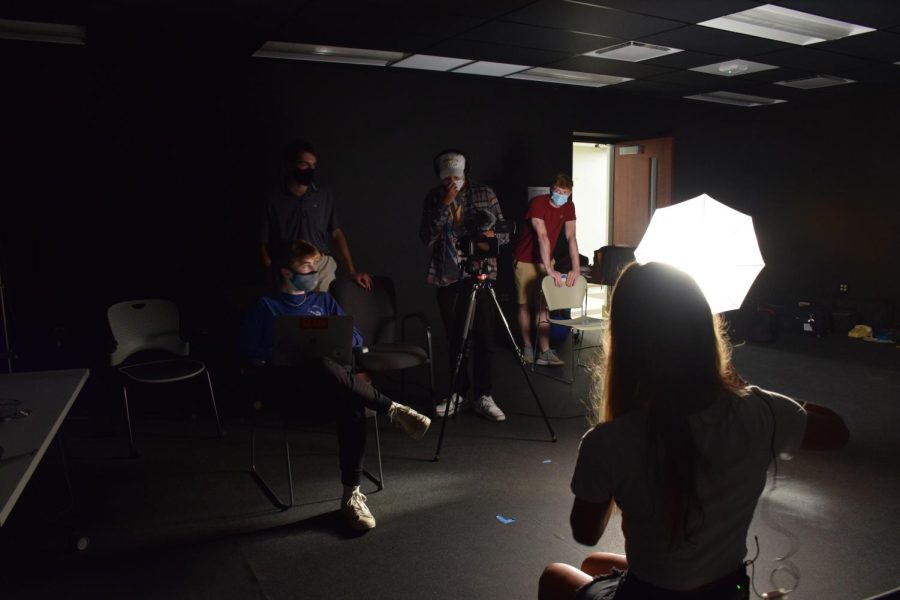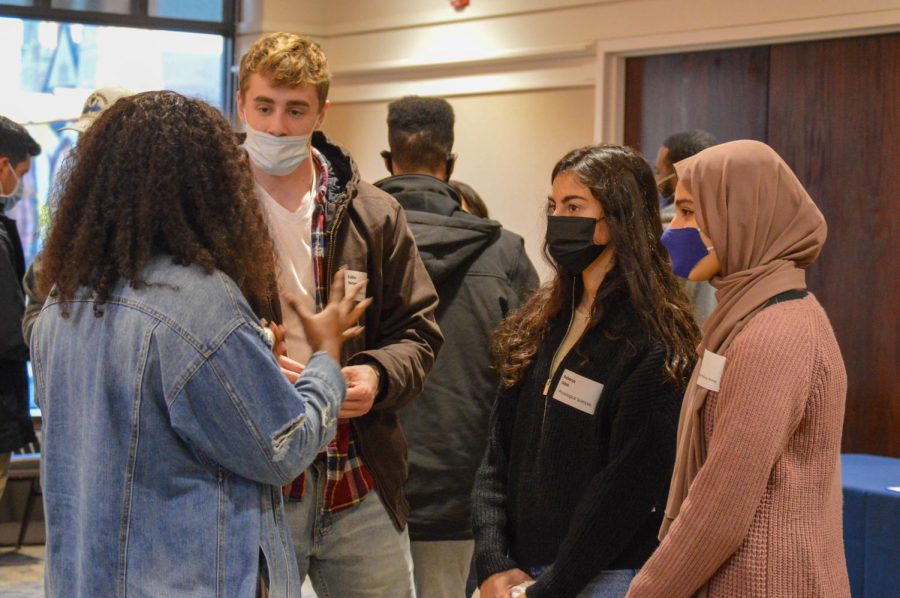Jackie Aguirre, a freshman in the College of Engineering, heard about Marquette at a school fair. She started her college journey without the help of her parents.
Jonathan Irias, a sophomore in the College of Arts & Sciences, says he knew his problem wasn’t getting accepted into schools; it was paying for it.
And Riley Dowdle, a junior in the College of Engineering, says she appreciates that Marquette’s name travels well and is proud of how far she has come.
These Marquette undergraduates are first-generation college students.
Aguirre says time management has been her biggest struggle during her transition from high school to college. She said the transition has been more difficult than she expected. As an Opus Scholar Award recipient, Aguirre received a full-tuition scholarship and attends weekly mentoring.
“It’s really helpful for me because they really guide us. I couldn’t ask my parents for help, but thankfully I get help from my scholarship group,” Aguirre says.
When she received her scholarship, Aguirre says she got lucky.
Aguirre says being a first generation student can feel lonely without knowing where to find advice.
“Not every first-generation (student) has a scholarship or mentoring program to turn to,” she says.
Irias moved from Guatemala to the United States at six years old. He is undocumented and says he is motivated to work hard. Irias had difficulty choosing colleges because sometimes he could not receive any federal financial aid and rarely found scholarship applications that were not for U.S. Citizens only, he says.
However, Marquette offered to cover Irias’ tuition fully through the Urban Scholars Program.
“I have always been aware that I am undocumented, so there’s always been this pressure that you’ve got to do your best,” Irias says.
With fellow students from the scholars program, he can express any frustrations and struggles he experiences. He also says he receives advice from his mentor, DJ Todd, through the program.
Like Aguirre, time management is one of Irias’ biggest struggles. However, he says he learned from his group’s mentor that it’s about choice management, the process of deciding what to dedicate time to, between homework assignments, studying and hanging out with friends when out of class and on weekends.
Without beneficial guidance and advice offered, not all first generation students are aware of the programs. It’s nearly impossible to help every first generation student.
Dowdle says there should be more support and mentoring groups regarding majors and financial aid for first-generation students.
“There should be a bigger support group for first generations, (so others) recognized there are so many of us,” she says.
Dowdle says she loves the many opportunities available at Marquette.
“I know it’s all me and not based on my parents. I like that aspect,” she says.
Unlike most college students, Dowdle isn’t able to embed herself into her parents’ social and professional networks. Even then, Dowdle says she appreciates the work ethic they instilled in her.
Aguirre says first-generation students represent opportunity.
“It’s empowering,” Aguirre says. “You’re bringing a title to your family in a way.”
Though Irias is protected from deportation until 2019 under the Deferred Action for Childhood Arrivals program, he keeps the deadline in the back of his mind.
“It’s not constant fear,” Irias says. “I use it as motivation to work hard and prove to myself that I’m actually worth something. I’m not here to feed into the stereotypes. I’m here because I have a purpose, and I want to get something done.”


